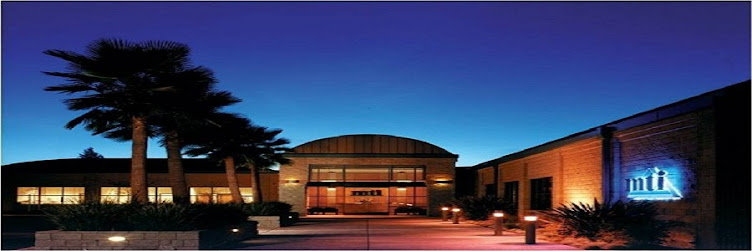While no one denies that a university education can open doors to a variety of careers, vocational school importance should not be cast aside. The enhanced training and practical experience trade programs such as the ones offered by MTI College, a leading technical school in Sacramento, provide can put you on the fast track to your career. If you prefer learning by doing as opposed to learning in a traditional academic setting, a vocational school may be your best option for post-secondary education. It emphasizes practical job-specific skills that you can use and apply in any number of fields, from HVAC to cosmetology to paralegal.
Vocational programs MTI College offers
The trade programs at MTI include business administration and accounting, paralegal studies, health care (medical assistant, medical coding and billing, and phlebotomy certification), technology (network administration and IT support), and cosmetology. In many cases, students can complete an MTI diploma program in one year or less and learn valuable job skills that prepare them for entry-level positions in the workforce. For those who want enhanced training, two-year Associate Degree programs are offered in business information, information technology and paralegal law work. In addition to lectures and classroom education, all programs provide practical experience via hands-on training. It’s this combination of learning opportunities that results in preparedness for good jobs. Class schedules accommodate those students who work part time or have family responsibilities that require flexibility.
Faculty admired and respected by students
MTI College hires faculty members who are experienced professionals, practicing in the fields they teach. They’ve been in the workforce and know the obstacles as well as the techniques needed to succeed. Because of small class sizes, faculty are better able to pay personal attention to students. Feedback about our instructors from the students indicates that they really care about them. Jenette Edwards, a graduate of MTI’s Medical Assisting program, says, “[The teachers] pushed me to do my best and to work hard.” A Paralegal Studies grad, Deb Stoeckle, says she enjoyed learning from the faculty. “Having a practicing attorney or working paralegal as an instructor brings stories and real experiences to the classroom.” Diane Campbell, another Paralegal Studies graduate, says all of the instructors are “stellar” and, “I was inspired to achieve because everyone was so supportive.”
MTI’s paralegal program vs. the others
MTI College of Sacramento has been educating students for more than 50 years. For more than 20 of those years, the American Bar Association has approved MTI’s Paralegal training program. Graduates who earn a two-year Associate’s degree can go on to work in the public or private sector as paralegals under the supervision of an attorney. A paralegal’s duties include helping with witness interviews, trial preparation, depositions, trials and preparing legal documentation. Choosing MTI’s Paralegal program has many advantages, including:
- Providing a two-year Associate’s degree program approved by the American Bar Association
- Pre-determined class schedules that are guaranteed to be available
- Small class sizes with books delivered to your classroom
- Results-based Guaranteed Graduate Program
- Flexibility of second-year learning either in a traditional on-campus classroom setting or through the OnlinePlus partial online format
- Job placement assistance, help with résumé-building skills and access to job search tools
- A history of high graduate job placement rates
What an MTI College education can do for you
MTI has been voted Sacramento’s Best Vocational College and is accredited by the Accrediting Commission for Community and Junior Colleges, Western Association of Schools and Colleges (WASC). A leading technical school in Sacramento, MTI has been preparing students for lucrative vocational jobs in business, health care, information technology, law and cosmetology since 1965. Students come away with the problem-solving verbal communication, written communication and industry skills necessary to succeed in the workplace. They benefit from attentive, respected faculty members who are committed to providing a well-balanced curriculum that combines traditional classroom instruction and hands-on learning opportunities. MTI offers placement assistance for its graduates in program-related employment and boasts a long track record of high graduate placement rates.
MTI consistently leads the way in vocational training and education, and prepares students with the knowledge, skills and confidence necessary for pursuing successful careers. Contact MTI College today to invest in your future.
The post What Differentiates MTI College from Other Technical Schools? appeared first on MTI College.
from
https://www.mticollege.edu/what-differentiates-mti-college/
